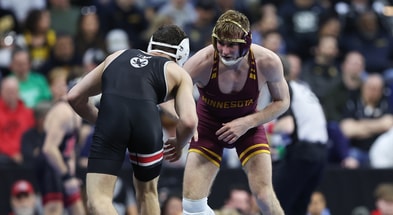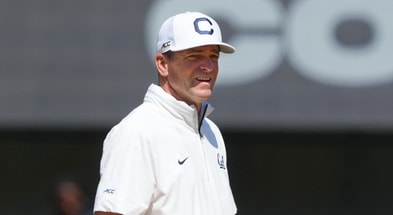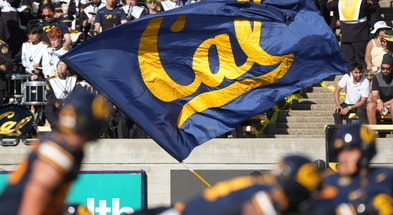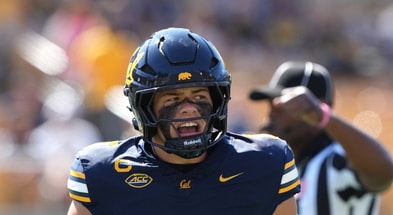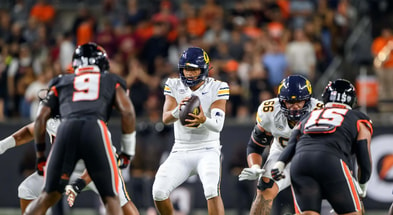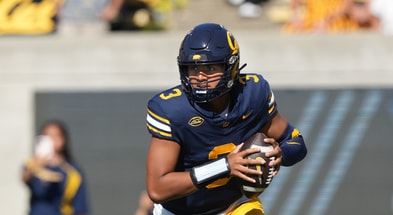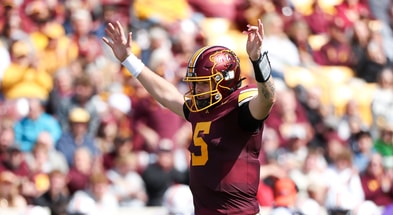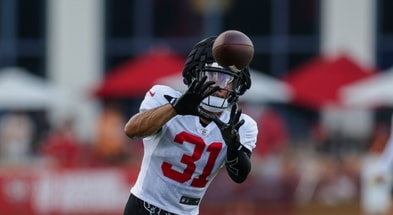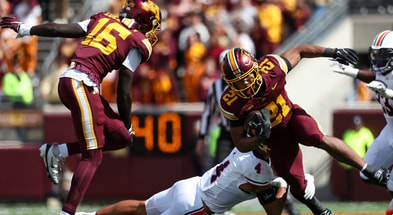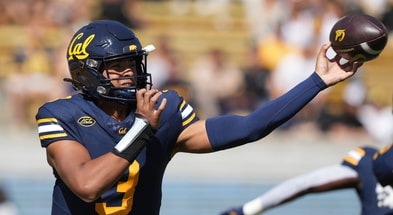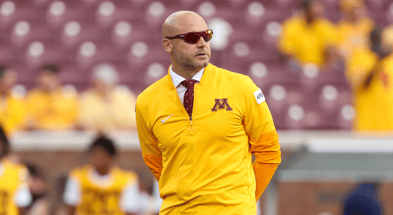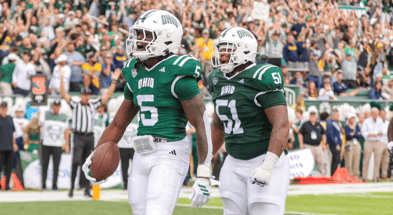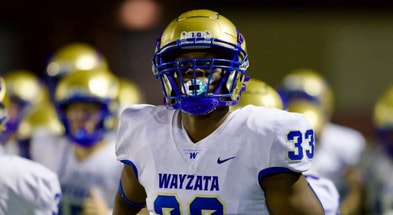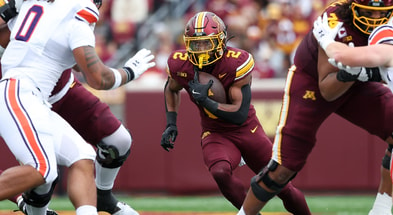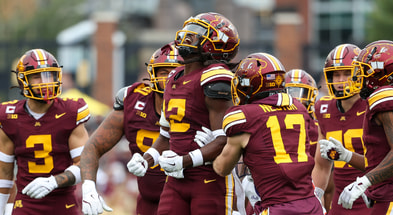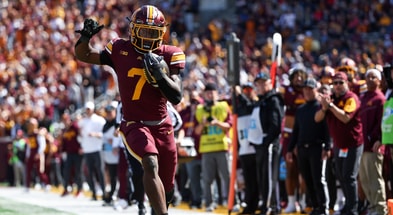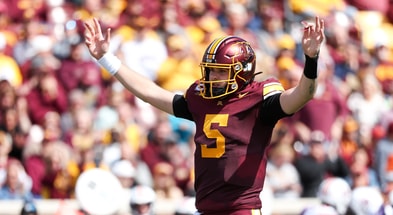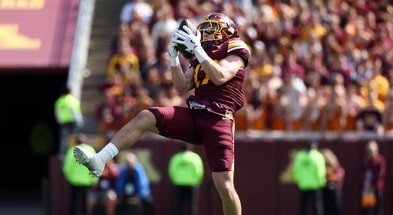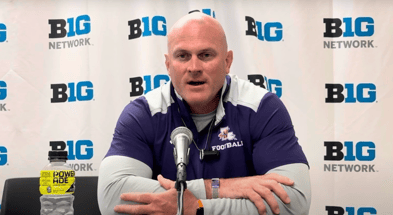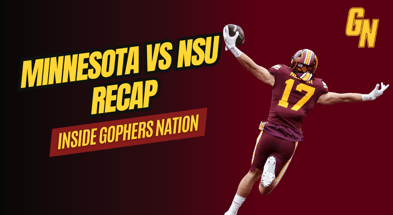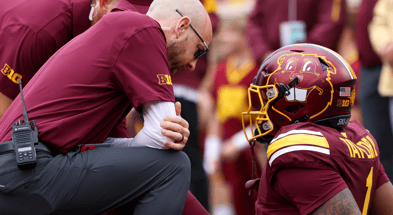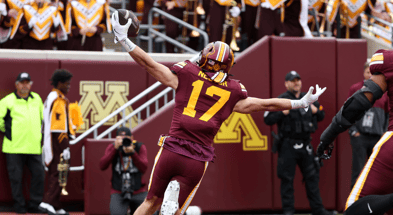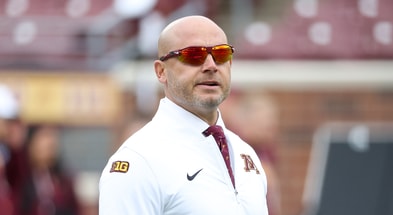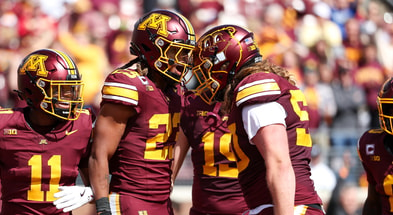Everything P.J. Fleck said after Minnesota's 14th practice of fall camp
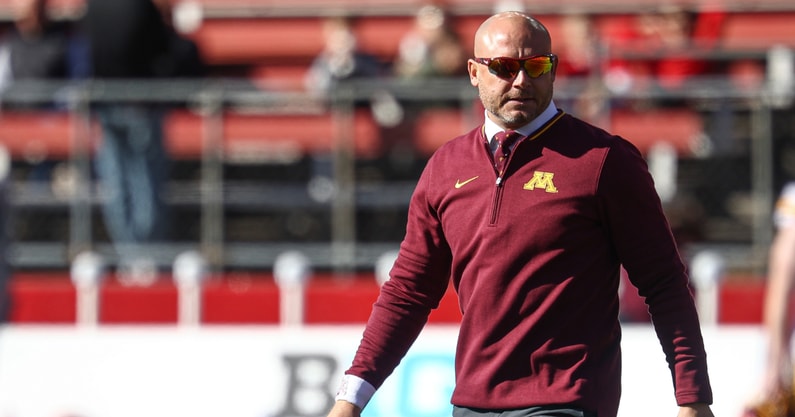
On Tuesday, Minnesota Golden Gophers head coach P.J. Fleck met with the media to discuss the progress of his 2025 team through 14 practices. Fleck goes over everything from the program’s selfless culture to their in-state talent, mental health support, academics, and more. Below, Gophers Nation provides every word that he said.
Don’t want to read all 2,500+ words? You can catch up on his time with the media by reading our takeaways article here.
How does Fleck assess things after 14 practices?
“The team’s obsessive. They’re an obsessive team, and they’re fun to coach. The more you give them, the better they do. They’re really connected. We talk about multipliers, that you don’t really care who gets the credit. But you really, genuinely want that person next to you to do really well. I know it sounds corny, but there’s groups that you’re a part of, and there’s teams you’re a part of, and this is a real team. They genuinely want the other guy to do well, and then they make sure that guy’s doing well, which is a very selfless team. But they’re obsessed with football. They’re obsessed with each other. They love being around each other. I have not seen a dip yet. Two and a half weeks in, I haven’t seen a dip at all. And maybe it’s our depth. Maybe it’s our versatility, but at the end of the day, when you look at it, it’s the group of young men we have, the coaches we have. Results, TBD, but boy, they are fun to coach.”
On Minnesota’s focus on mental health
“That’s a great question. The mental health side, Dr. Carly Anderson and her staff do an absolutely elite job with our student athletes. We’re talking 24-7 of anything our student athletes need. I’m a huge advocate for it, whether it was back at Western Michigan, whether it was here, whether it was when I was a player. I share with our players, you needed somebody to talk to, go talk to somebody. I see somebody every Thursday to talk to them about certain things, and I love that. Just not just the mental health, but just talk to somebody else to get something off your chest. Be able to have somebody help you in that professional space. It’s critical. These young people are growing up faster than ever. It used to be, Mike, you covered professional sports for a very long time. It was the professionals. They’re grown men and grown women. And you’re talking about 23, 24-year-olds. We’re now taking that money and taking different things to college football and doing it way younger, 17, 18 years old. They’re almost doing life in reverse, and we’re doing it way quicker. So when you think of all the issues that a lot of NFL players have possibly had, and possibly when you look at the bankruptcy rate, three years removed from the NFL, we’re now doing that in college. So what are you doing in the college level to help that? Dr. Carly Anderson does an amazing job, but it’s also education. It’s transparency. It’s communication. It’s getting to know your players. This is a transformational program, Max, in every area that we could possibly be, academically, athletically, socially, and spiritually. And you bring the mental health side into it. But we’re a transformational program. That doesn’t mean transactions aren’t part of a transformational program, but it still comes down to values. And we value the person, right, from the tip of their head to the end of their toes, and everything included. And we value that entire person. And I think that’s what makes our program special for people that fit it, that even in this NIL world and this pay for play world, we might not have the highest budget everybody has, but we can retain players because they value the experience, the life experience they’re going to have. And mental health is a huge piece of that. But Dr. Carly Anderson and her staff deserve a ton of credit. And a lot of our players see sports performance. And they don’t know that Dr. Carly and her staff, they do, you might not know, they train with the Olympians for that one moment that they have to perform for 11 seconds. They train four years for that 11 seconds, and they have to do it. That’s more sport performance as well. So making sure that we have a strength coach, we’ve got a DB coach, we’ve got a quarterback coach, we’ve got all these coaches. But the brain tells everything what to do and how to do it. And if it’s in a good state or a not so good state. So Dr. Carly deserves a ton of credit for all of that. And so do our players for actually having the courage to reach out and use those types of resources that they’re surrounded by. Great question.”
Special Offer: Get Gophers Nation for $1 the first week
On maintaining culture in the new world of college football
I think as the louder the noise gets on the outside, and the more the changes happen on the outside, the more you just have to continue to be authentically and genuinely you inside. And that’s what our program is.
I mean, we are who we are. The pay for play, a ton, not so much, still won’t change how we run our program. It’ll add what education we give our players in the future. From tax classes to finance classes, to support systems, to how to go about picking certain people within your circle, whether it’s accountants or financial advisors or life coaches, things like that. And making sure that circle’s really strong. But when you’re talking about the external, that’s the external. That’s always gonna keep changing. The one thing that stays the same in college athletics is it always changes. And that number’s gonna keep moving. That number’s gonna keep getting bigger. The attention of pay for play is gonna get even stronger. But internally, it’s all about the life values and the program and what these student athletes… We’ll find 25 players in the high school level from West Coast to East Coast, North to South that fit us. I promise you we’ll do that because we’re gonna find the right families who value what we value. Doesn’t mean money’s not important. Money’s really important. But if it’s the number one thing you value, it’ll be what you do everything for. And sooner or later, that’s gonna leave you empty. And we wanna be able to fulfill these players. And that’s what the value system does. So I think us being louder internally and being us for who we are, but also changing within the transaction world has really helped us maintain a really good culture.
On the importance of academics
“Yeah, I mean, academics are really, at the end of the day, why kids come to college. I mean, I know that gets lost in the shuffle, but I think I said this at media days is the student classroom experience is really important. We got guys out here at 4.0s. They’re in the Carlson School of Management. They’re in an engineering school. We got pre-med guys. We got teachers. We got lawyers. We’ve got social workers. I mean, we got all these people, right? But the education they’re getting every day with the changes that Chip asked about to college athletics is just as important now. So when you’re talking about the academic piece, that’s really important. 59 academic all-American, it’s awesome. But now this education within the program, the HEAR initiative, right? All of our Gopher for Life programs, that’s important too because they’re getting the real world faster. Think about when you guys were in college, the real world didn’t hit you until you graduated, but they’re getting the real world now. Like now at 17, 18 years old, they need that education just as much as the classroom education. And I think that’s why our program’s really strong.”
On the Gophers’ cornerback situation and roster decisions
“We’re still in it. The good thing it’s not tomorrow. If it was tomorrow, we’d play a lot of guys. We still have this week. This is kind of the mastery week to kind of make those decisions. That third week, as you’ve known me for a long time, that third week, we start making those roster decisions. But Andy, it won’t be just two guys. We’re gonna play three or four guys at that position. I think a lot of guys have earned time. I think our versatility and our depth is our advantage. So I think you’re gonna see that a lot amongst our whole team. You know, that who played in this game will probably be higher than it’s ever been.”
MORE: Takeaways: How does P.J. Fleck asssess his team after 14 practices?
On Kahlee Tafai
“I think just his mental toughness. I think he’s really built himself. You know, his off season, he had a surgery, overcame that. So we had to expedite his process, but it still had to be a process. You couldn’t just throw him into the fire. Mike Sypniak and Joe Wisniewski and all those guys do a great job of making sure our guys get back when they need to get back. But Khaleed’s done a great job of absorbing all of that. He’s more mature than he got here. The O-line’s really kind of brought him in. Again, it’s more of that multiplier than just an adder. But his whole game, he’s really athletic. He’s really strong. He loves football. We just gotta keep going with him and get him in that playing shape and should be really good.”
On the Gophers’ overall progress with two weeks to go
“Yeah, great question. A lot of check marks we wanna hit. Being in the stadium as much as possible, Grimmie. We’re here today, obviously. But we have our mock game coming up. We’ve got a night practice on Thursday in the stadium, which is gonna simulate game day two weeks from kickoff, exact time we’ll start practice when kickoff starts. So we do a lot of those things. Roster movements, things like that, we’ll start doing.”
What he’s seen out of running back Darius Taylor?
“Darius Taylor, he’s a phenomenal leader, phenomenal human being, but I think he’s grown a lot as a tailback. This is really, when you look at it, this is really his fourth year ever playing running back. And I think we sometimes forget about that, that he was a high school wide receiver until his senior year. So I’ve just seen a lot of growth. It’s the reading, it’s the diagnosing. His pass pro is better than it’s ever been. And just his leadership with that whole room. He makes that room better. He’s a multiplier. Obviously, he’s been a really good receiver. But I think just seeing the cuts, reading it, exploding through contact, getting the hard two, hard three, that’s what I see from him.
On the Gophers’ offensive progress in fall camp?
“They’re growing, they’re growing. I think they’re a way closer unit than they were from the spring. You talk about guys who keep multiplying each other. I keep bringing up that word, but that’s what they’re actually doing. They don’t really care who gets the credit. If they stay obsessed and they stay selfless, they got a chance to be really good.”
On the potential for the offense to be more explosive with multiple playmakers
“I think we do, Chip, I really do. I think we’ve got some of them. So maybe players that maybe people haven’t heard much about. I’m not saying people haven’t heard about Coy, but the Jalen Smiths of the world. A lot of people don’t know much about him, but they’re gonna find out really quick. And I think that’s what’s fun about our whole offense is, I think last year you pointed to maybe two or three people, you’re like, all right, these are the two, three guys that can make plays, whether it was Daniel or Elijah or Darius. Here, I think that’s maybe we have three times as many guys that can all function with the offense, make plays, be an explosive playmaker. And again, it goes back, if we can stay selfless and stay multipliers throughout the whole season and not care who gets a credit, this can be a really good offense.”
How does Fleck use camp to learn more about intangibles and players?
“Well, one, it’s how they practice, right? Two, we have group meetings at night here and there, like small breakout groups. You learn a lot about your players, how they handle themselves and what they’ve been through. There’s some things that maybe they haven’t even told me that they’re telling other people or that I find out. I think those are really important. They’re still young people. Don’t ever forget, they’re still young people. Behind the money, behind the exposure, behind all these things that we’re making them grow up really fast. We had a magician, Tom Pesce, in yesterday. And they’re kids. They just wanna laugh. They just laughed. And they thought the magic was so cool. And bringing them all together, I mean, that’s what it’s all about. You take them to lunches and you take them to dinners, you get them off campus and you watch them be a team. You watch them be 18 to 22-year-olds. They have to be that. I think sometimes we forget that they have to be 18 to 22 too. Let them be 18 to 22. So I think that’s where you find out most about your team are those moments. But this team, I’m just gonna make sure I make this clear. This team, there’s nothing silly about this team. They’re not asking when we’re going to the water park, when we’re going to the movie, when we’re going to… They don’t ask. They’re gonna play ball. They’re gonna do what’s on the calendar. And when we do something, they go enjoy it together. It’s pretty special. Gerritt Chernoff does a really good job of connecting all the activities we do through all the stuff that’s kind of on that outside of the football program piece.”
How much does he see Minnesota-born players having an impact this season?
“Yeah, I expect them to have a massive impact. When we first got here, it was really hard recruiting in-state talent. We said that it was gonna have to take cultural sustainability for anybody, not just me, to keep in-state talent over a long period of time because you wanna see proof. I think in-state kids wanna see proof. You know, when you’ve had seven coaches in 15 years before we got here, that’s a hard sell when you have your rivals having cultural sustainability. So I think we needed to create that here. I think the more we’ve created that, the more young people are willing to stay home in the state of Minnesota. Then you watch guys like the Carter Coughlins and the Barbers, they start setting the path for everybody else. And now you’re watching Koi Perich do what he do, Emmanuel Carmo’s having a great camp, watching all these in-state talent guys, Danny Striggow. Then all of a sudden, it becomes infectious. Then it becomes the cool thing to do in-state. It becomes a, we should all do that instead of just talk. And I think that’s really important. So we’re excited about what we’re doing. We’re excited about the classes we continue to have from the state of Minnesota and look forward to keeping that tradition going here. All right, thank you guys.”
